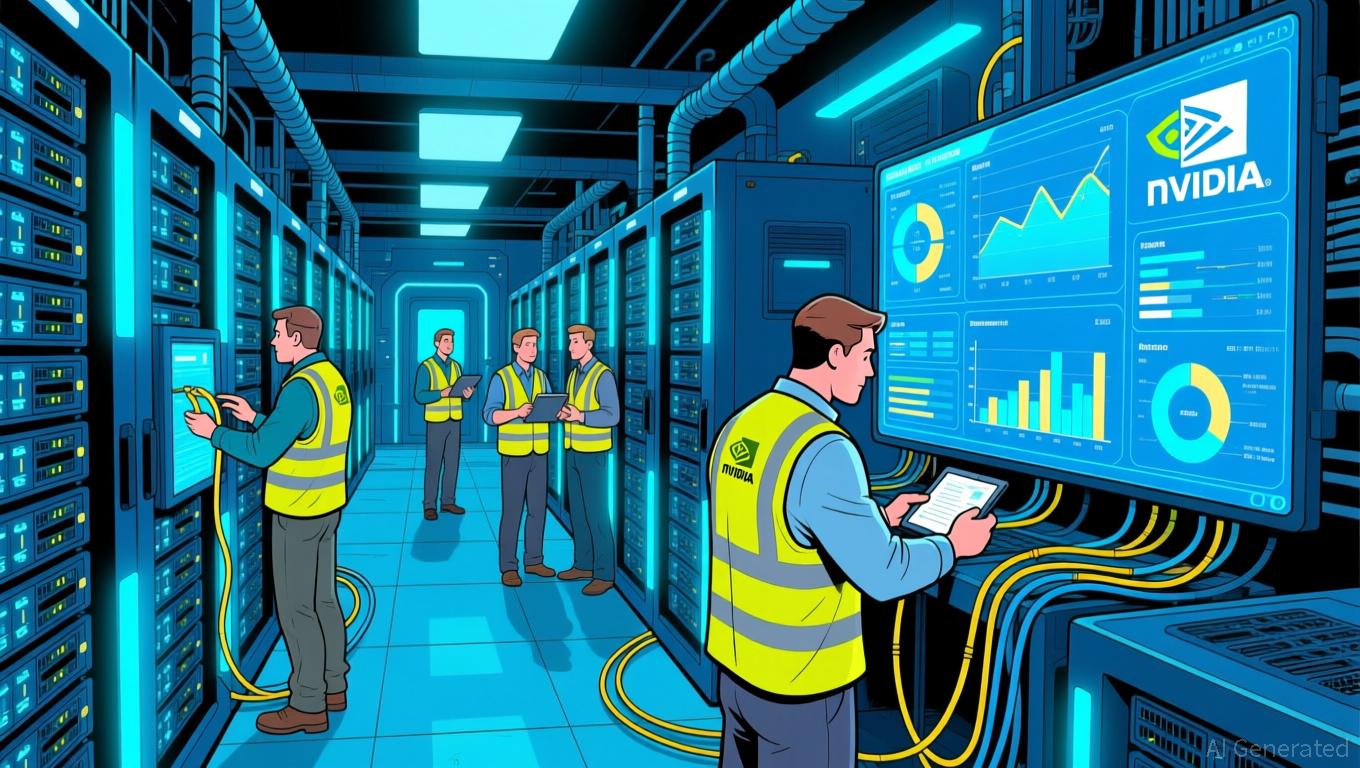Mystery Grows as JPMorgan Closes Crypto Accounts Even After Trump's Prohibition
- JPMorgan's closure of Strike CEO Jack Mallers' accounts reignites debates over crypto-linked "debanking" despite Trump's August executive order banning such restrictions. - The bank cited "concerning activity" under the Bank Secrecy Act but refused to explain its decision, echoing industry concerns about politically influenced banking practices. - Critics warn such actions risk pushing crypto activity overseas and highlight unresolved tensions between regulatory compliance and innovation in digital asset
JPMorgan Chase’s recent closure of Strike CEO Jack Mallers’ personal bank accounts has reignited debate over whether American banks are still limiting services to individuals connected to cryptocurrency, despite a directive from President Donald Trump that forbids such actions
In a letter sent to Mallers by
This account closure seems to run counter to Trump’s executive order from August, which specifically bars banks from refusing services to crypto-related businesses. The administration described the order as a measure to prevent unfair treatment, but Mallers’ experience underscores ongoing doubts about its implementation. Jason Allegrante, Fireblocks’ Chief Legal and Compliance Officer,
This event follows earlier accounts of debanking involving Trump and his family. In June,
JPMorgan’s decision also comes at a time of strong financial results.
As the crypto industry faces ongoing regulatory and institutional hurdles, Mallers’ situation has become a central example in the debate over how to balance regulatory compliance with financial innovation. With no definitive answers yet, the case raises important questions about whether digital asset companies will have reliable access to banking and if federal protections will be effectively enforced.
Disclaimer: The content of this article solely reflects the author's opinion and does not represent the platform in any capacity. This article is not intended to serve as a reference for making investment decisions.
You may also like
Solana News Update: Solana Exceeds 10 Billion USDC as Circle Drives Blockchain Scalability Expansion
- Circle mints 10B USDC on Solana since October 11, highlighting blockchain's scalability and low-cost advantages for stablecoin adoption. - SNDL Inc. renews C$100M share buyback program (10% of float), driving 1.86% post-announcement stock surge in after-hours trading. - TSA projects record 3M+ Thanksgiving travelers on Nov 30, 2025, with 17.8M+ total holiday passengers attributed to "Golden Age of Travel" policies. - Bitcoin Munari launches $0.10 presale (up to $3.00) with 53% supply allocation, targetin

Ethereum News Update: Major Institutions Fund Ethereum's Legal Battle While Individual Investors Pull Back
- Ethereum stabilized near $2,800–$2,850 after November's sell-off, with BitMine Immersion Technology accumulating 3.63M ETH (3% of supply) to become the dominant public treasury. - BitMine's $59M market injection and 70,000 ETH weekly purchases highlight its 2/3 control of public treasuries, while 24-hour trading volume surged 35% to $24B. - Crypto market cap briefly exceeded $3T amid ETF inflows ($238M for Bitcoin , $55.7M for Ethereum), but JPMorgan noted $4B November retail outflows from crypto ETFs. -
Trump’s Genesis Initiative: The Potential of AI and the Cost of Authority
- Trump's executive order launches the "Genesis Mission," a federal AI initiative to boost scientific innovation via national labs and private-sector partnerships. - The program aims to accelerate breakthroughs in medicine and energy by leveraging supercomputing resources from DOE labs and tech giants like Nvidia and AMD . - Critics highlight energy consumption risks from data centers, while market skepticism emerges as AI stocks like Nvidia face valuation pressures amid surging demand. - The mission under

The ICP Caffeine AI Boom: Exploring How the Integration of AI and Blockchain is Transforming Early-Stage Investment Environments
- ICP Caffeine AI's token surged 45% to $5.20 in Nov 2025, driven by its decentralized AI platform enabling app creation from text/image/code prompts. - The platform reduces AI inference costs 20-40% via "chain-of-chains" architecture and reverse-gas model, challenging centralized cloud providers with scalable, censorship-resistant compute. - Despite $237B TVL growth in Q3 2025, 22.4% dApp activity decline highlights adoption challenges, while market fragmentation and sector volatility test its long-term v
